Think tank forum calls for innovation to meet global challenges
January 19 , 2021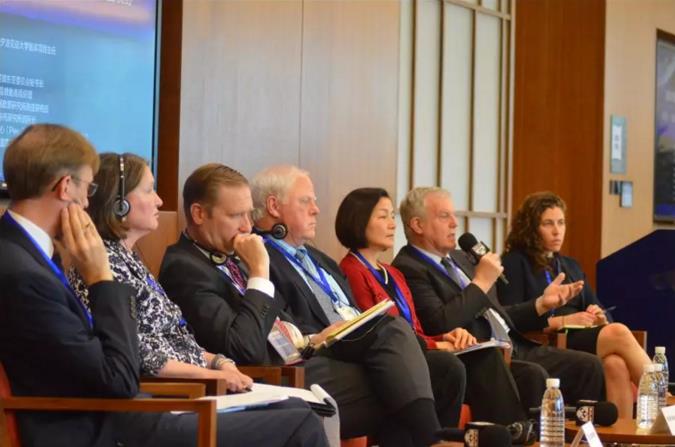
The 4th Annual China Global Think Tank Forum welcomed think tankers, scholars and experts in this field from around the world to share their views and solutions to current challenges faced by global think tanks. Hosted at the Penn Wharton China Center in Beijing, on May 28, 2019, representatives from Chinese think tanks, academia and research organizations gathered to hold exchanges and discussions with experts. Over the past decade, Chinese think tanks have experienced unprecedented growth and development as policy-makers pay more attention to the constructive role they play in policy research and policy making.
Four years since its inaugural meeting, the China Global Think Tank Innovation Forum has established itself as the most prominent platform promoting the development of think tanks in China. Co-organized by the Center for China and Globalization (CCG) and the University of Pennsylvania’s Think Tanks and Civil Societies Program (TTCSP), this forum explored the role of think tanks in the new era of globalization and the urgent issues facing the development of think tanks. This forum was also held in partnership with Our Hong Kong Foundation, Penn Wharton China Center, who hosted the event, and China Global Talent Forum.
The first day of the forum offered the opportunity for participants to engage with over 40 government ministry and embassy representatives, and leading experts from Chinese and international think tanks such as Chatham House, Heritage Foundation, Cato Institute and Pew Research Center, participants, hailing from prominent Chinese think tanks, top universities and research organizations.
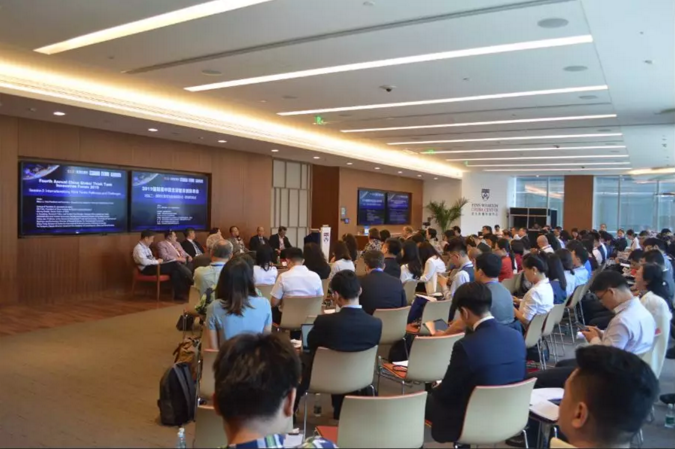
Broken down into four sessions, each session gathered specialists to discuss topics ranging from the role of think tanks in international affairs to management, organizational innovation think tank strategy and think tanks’ role in international relations.
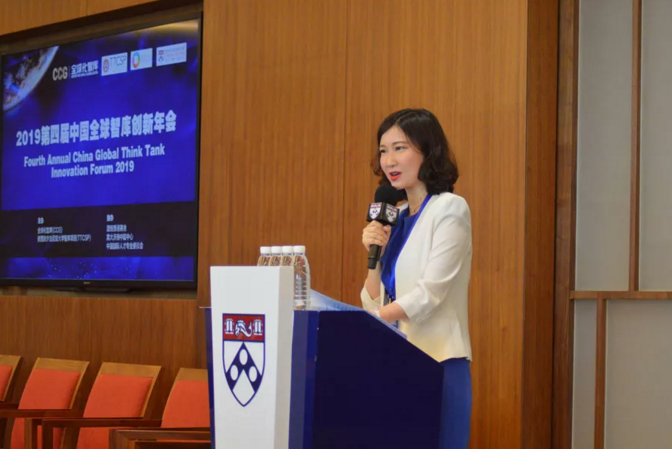
Opening the forum, Dr. Mabel Miao, General Secretary of CCG, spoke of the incredible development China’s think tank community has seen in recent years. She highlighted how the experience of CCG’s international work is representative of the progress of Chinese think tanks, displaying their potential global reach. With the aim of fostering greater collaboration and cooperation among Chinese and international think tanks, this forum offered great promise driving international engagement, Dr. Miao concluded.
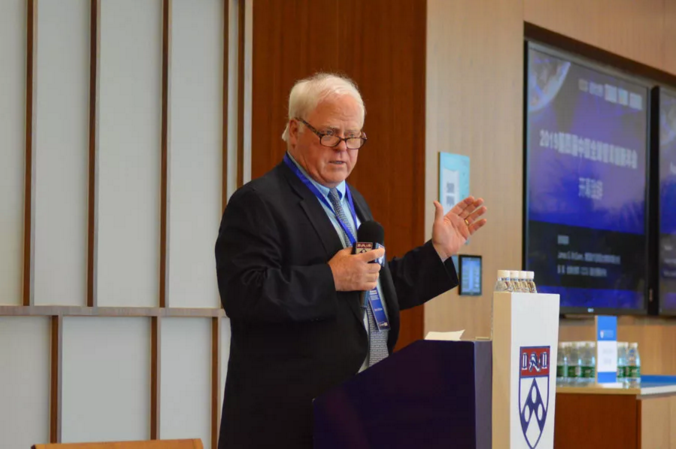
In the current international circumstances, Dr. James McGann, Director of TTCSP, stressed the unique role of think tanks in the current international climate, and the urgent need for dialogue and cooperation between think tanks from different regions and countries. Referencing President Xi Jinping’s push for the development of think tanks, Dr. McGann noted Chinese leadership fully support the growth of Chinese think tanks, but with this recognition comes great responsibility. Suggesting key areas where Chinese think tanks can improve, Dr. McGann suggested website design and online presence, diversity and accessibility, and forging meaningful partnerships with key institutions in the West as crucial for greater expansion and development.
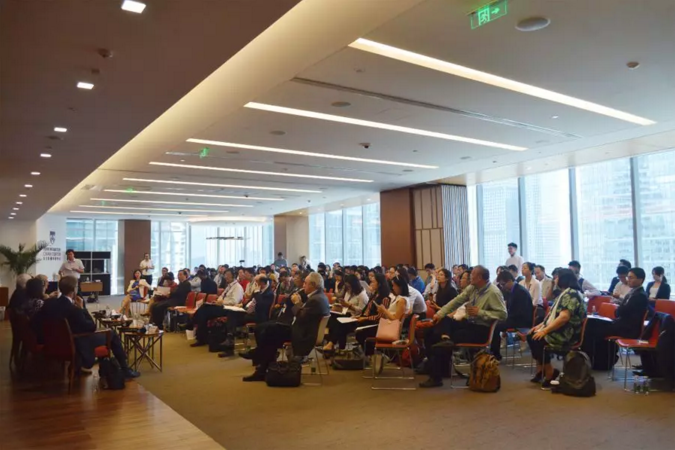
Session One: Think Tank Innovation in the Age of Globalization 4.0
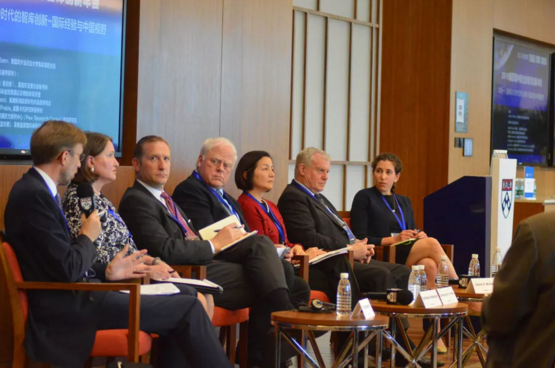
To set the stage for how think tanks can operate and thrive nationally and internationally in the age of Globalization 4.0, Session One gathered a panel of leading experts from think tanks and international organizations. Speakers detailed their own institutions’ innovation and how they view the development prospects of the think tank community in China. The panel agreed on the need for think tank to produce non-partisan products which are easily accessible and digestible for a global audience. Many panelists, noting the rapid growth of think tanks in China, encouraged Chinese think tanks to adopt an open and global mindset when considering their expansion.
This session was chaired by Dr. James McGann, the panel included: Alistair Michie, Secretary-General of British East Asia Council (BEAC), Angela Mo, Senior Manager of Policy Advocacy and Engagement, Our Hong Kong Foundation, Kathleen Newland, Senior Fellow, Migration Policy Institute (MPI), Christopher Preble, Vice President for Defense and Foreign Policy Studies at the Cato Institute, Laura Silver, Senior Researcher, Pew Research Center, and Tim Summers, Senior Consulting Fellow of the Asia-Pacific Programme, Chatham House.
Session Two: Internationalizing Think Tanks
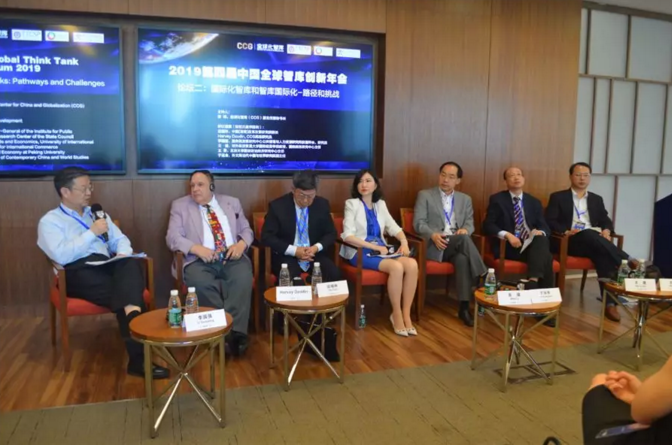
As think tanks around the world look to expand internationally, the second session explored the paths and prospects of global think tanks, and the necessary factors conducive to the internationalization of think tanks. Panelists put forward building up mutual trust through joint events and visits as a crucial building block on the path towards creating meaningful relationships between institutions.
CCG was highlighted as an exemplary think tank in this light, having recently completed two U.S. trips focused on “track II diplomacy” activities and think tank engagement. Mirroring the first session, speakers agreed that the mindset and goal of achieving mutual understanding and building trust as critical elements in successfully cooperation, a key component of think tank internationalization.
Chaired by Dr. Mabel Miao, Session Two panelists included: Chi Fulin, President of China Institute for Reform and Development, Harvey Dzodin, Senior Fellow, CCG, Li Guoqiang, Research Fellow and Former Vice Director-General of the Institute for Public Administration and Human Resources, Development Research Center of the State Council, Wang Jian, Professor at the School of International Trade and Economics, University of International Business and Economics; Director of Research Center for International Commerce, Wang Yong, Director of Center for International Political Economy at Peking University, and Yu Yunquan, Deputy Director-General of the Academy of Contemporary China and World Studies.
Session Three: Innovation and Cultivation
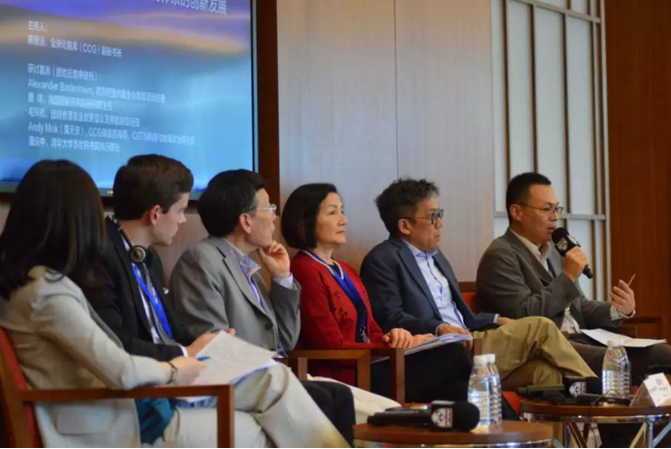
To provide more practical insights on how to introduce innovation at an operational and management level, this session hosted panelists from a diverse range of organizations to share their experiences. Crucial elements such as talent cultivation, innovative international engagement initiatives and best practice in fostering meaningful cooperation were put forward by speakers. A main thread running throughout this session was the impact of technology on think tank operations and the necessary online presence required for a think tank to be effective and relevant in contributing to policy-making and public debate.
Dr. Ann Tang, Vice Secretary General of CCG chaired this session, with panelists: Alexander Badenheim, Senior Program Manager of Konrad-Adenauer-Stiftung, Pan Qingzhong, Executive Dean of Schwartzman College, Tsinghua University, Angela Mo, Senior Manager of Policy Advocacy and Engagement, Our Hong Kong Foundation, Andy Mok, CCG Senior Consultant, CGTN Technology and Geopolitics commentator, and Lu Qi, Director of Research at Intellisia Institution.
Session 4: Innovating Think Tank Cooperation in the Context of Great Power Competition
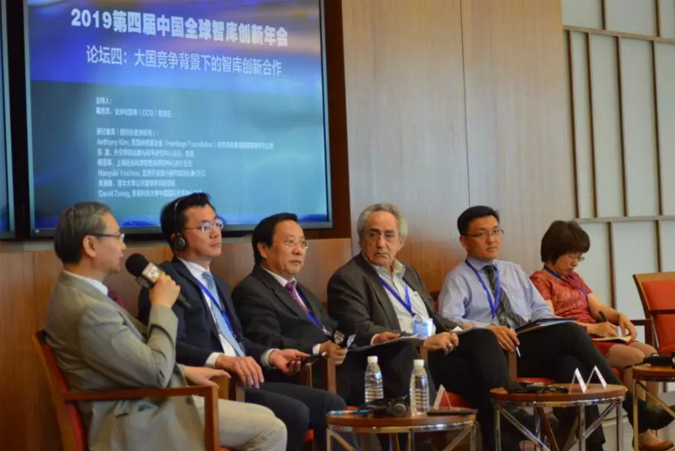
Competition in trade, politics, science and technology, and culture among big powers is becoming increasingly fierce. To overcome this, many are seeking alternatives to traditional governmental exchanges to improve inter-state relations. It is in this space that think tanks can play a key role in improving national relations.
The fourth and final session of this forum shone a light on the pathways for increasing engagement between think tanks, with the aim of fostering better ties between nations. This panel discussion placed the paths and methods raised in earlier sessions into the current international context.
Sino-U.S. trade frictions naturally dominated this session, with all agreeing think tanks, as non-governmental bodies, should help create spaces to seek consensus between the two powers.
Victor Gao, Vice President of CCG hosted this final session, with panelists including: Anthony Kim, Research Manager and Editor of the Index of Economic Freedom, Heritage Foundation, Su Hao, Director and Professor of Center for Strategic and Peace, China Foreign Affairs University, Yang Yaqin, Executive Director of Center for Think Tank Research, Shanghai Academy of Social Sciences (CTTS), David Zweig, Director of Center on China’s Transnational Relations, The Hong Kong University of Science and Technology, Zhu Xufeng, Professor and Associate Dean at the School of Public Policy and Management, Tsinghua University, and Naoyuki Yoshino, Dean and CEO of Asia Development Bank Institute, who joined the panel via video link.
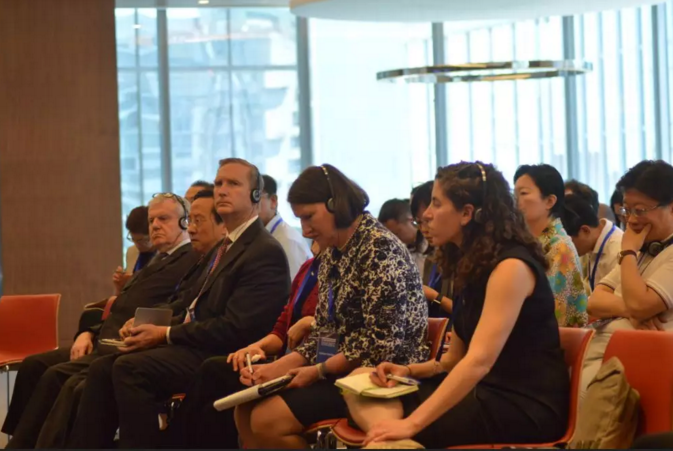
Think tanks are hubs for thought and engagement. The work done by and the research produced by global think tanks inform public debate and shape policy at national, regional and international levels. As relations between China and the U.S. have become strained, it is of the upmost importance that think tanks, as policy-advising organizations, cooperate and exchange perspectives.
This forum not only showcased the potential of global Chinese think tanks, but also was an embodiment of what can be achieved through cooperation between Chinese and American research organizations.
2019 High-Level Seminar on World-Leading Think Tanks
On the second day of the forum, the 2019 High-Level Seminar on World-Leading Think Tanks took place. Convening experts from leading Chinese and international think tanks, the seminar aimed to facilitate intellectual and experiential exchange and share observations on the innovative development of Chinese think tanks.
A follow up to the success of the 2017 and 2018 sessions, this seminar drew on the experience, expertise and best practice of leading think tanks from around the world, seeking to promote in-depth exchanges between Chinese and international experts from the think tank community, academia, and related fields.
The training focused on the environment for the flexible growth of Chinese think tanks and how to seek innovative and creative solutions for the sustainable development of think tanks in this context.






